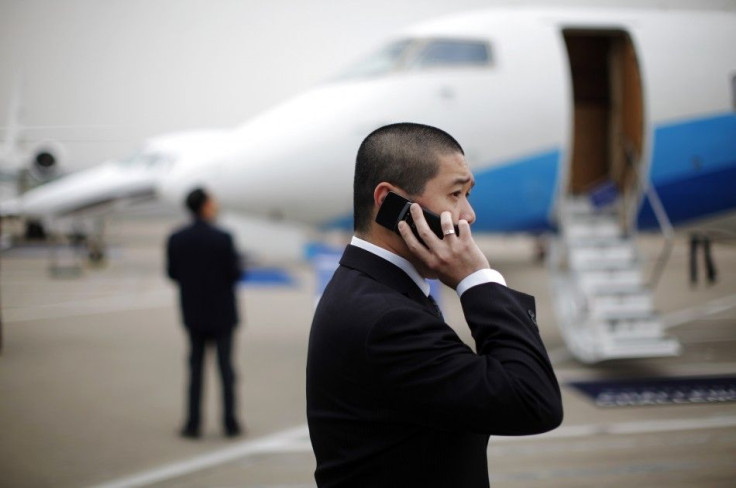FCC To FAA: Allow Greater Use Of In-Flight Electronics
FCC Thinks Airplane Electronics Rules Are Absurd

Why do airlines make you turn off your "portable electronic devices" before takeoff and landing? Good question, says the Federal Communications Commission, or FCC.
Indeed, it's a question many have asked over the years, and, while the rule is clear, the answer is anything but. So last week, FCC Chairman Julius Genchowski sent a letter, first obtained by the Hill, to Michael Huerta, acting administrator of the Federal Aviation Administration, or FAA, urging the agency “to enable greater use of tablets, e-readers and other portable electronic devices” during all phases of the flight.
In August, the FAA launched a study group comprised of representatives from mobile technology and aviation manufacturing industries, pilot and flight attendant groups, passenger associations and airlines to review its policies on in-flight use of electronic devices after passengers like Alec Baldwin made their complaints loud and clear: “Would you really get on an airplane that flew 30,000 feet in the air if you thought one Kindle switch would take it down?” he asked.
It’s a valid point. Most of us would not get on a flight if we thought that flipping a switch on an electronic device at the wrong time could cause the plane to crash. Moreover, for a policy that depends on the honor system (and is often ignored), why hasn’t a plane fallen out of the sky by now due to the use of an electronic device?
That’s what the FAA hopes to discover with its new review, though the agency has suggested it may not, to the chagrin of many, consider the use of cell phones for voice communication during flight.
“This review comes at a time of tremendous innovation, as mobile devices are increasingly interwoven in our daily lives," Genachowski wrote in her letter to the FAA last week. "They empower people to stay informed and connected with friends and family, and they enable both large and small businesses to be more productive and efficient, helping drive economic growth and boost U.S. competitiveness."
The FAA, which has declined to comment on the letter, long claimed there are just too many unknowns about radio signals that these devices give off. Because the pilot and cockpit crew need to focus on critical arrival and departure tasks, the FAA argued that any use at lower altitudes could interfere and become a safety hazard.
Critics, however, disagree.
Joe Carpenter of CTIA, the international association for the wireless telecommunications industry, said it's silly that he can't read a book on an e-reader until he has reached this "arbitrary cut-off."
"This has always struck me as an antiquated rule that no one could explain, especially since there are several airlines that offer tablets for their pilots. In the Air Force, our fighter pilots may soon be wearing tablets to provide them with real-time information," he noted on the CTIA blog. "The use of portable electronic devices while on a flight -- the whole flight -- should absolutely be allowed."
The last review of gadgets on planes took place back in 2006 before tablets, e-readers and most smartphones existed. The FAA found that there was “no evidence saying these devices can’t interfere with a plane, and there was no evidence saying they can.”
Many who have opined on the matter for the last six years hope for more conclusive results this time around, but experts say even if the FAA changes its policy, it could take up to two years for it to go into effect, because officials would have to test every electronic device on every aircraft model.
Then, there’s the social dilemma: Do you really want your seatmate yapping away on his or her phone the entire flight? And if there really was an emergency, would that person actually pay attention to the crew?
© Copyright IBTimes 2024. All rights reserved.






















